
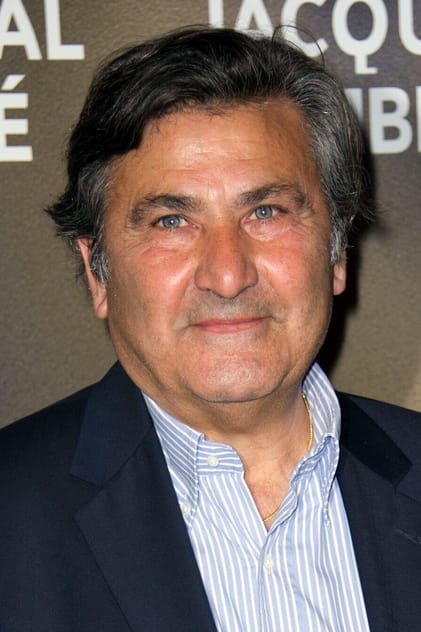
Paul Amar
Born: January 11, 1950
in Constantine, Algeria
in Constantine, Algeria
Paul Amar (born 11 January 1950) is a French journalist and television presenter.
Paul Amar graduated at the CFJ (Centre de Formation des Journalistes) of Paris. He began his career in 1971 at France Inter as a war correspondent in Phnom Penh, and then as a correspondent in Washington.
In 1979, he joined Antenne 2 as a reporter. In 1980, he presented the night news and became chief of the political service in 1983. Since 1990, he presented the evening news 19/20 on FR3, and since 1992, the french evening news Journal de 20 heures on France 2. He was forced to resign after hosting, on 1 June 1994, a debate between Jean-Marie Le Pen and Bernard Tapie during the campaign preceding the European election, in which he proposed boxing gloves to both opponents.
Paul Amar then joined Paris Première to host the Journal de 20 heures. From 1996 to 1998, he presented on TF1 a debate titled Le Monde de Léa, before presenting Dimanche Midi Amar on France 2 for two years. From 1999 to 2004, he joined again Paris Première to interview every week for 52 minutes a personality in Recto-Verso, with which he won a 7 d'Or in November 2004.
From 1995 to 1999, he presented D'un monde à l'autre on France 2 on Monday evening. In 2001, he joined France 5 to present On aura tout lu and since April 2005, États Généraux, from September 2005 to June 2007.
Since September 2007, Paul Amar presents Revu et corrigé every week on France 5, succeeding to Daniel Schneidermann and Arrêt sur images. In September 2012, after five seasons, Revu et corrigé was replaced by 19 h Paul Amar. The program ended in June 2013.
In January 2016, he became Director of Information at i24News. From Sunday to Friday at 7pm (French time), he was animating the Paris/Jaffa show, live from the Jaffa-Tel Aviv studios. He was dismissed in March 2017.
Paul Amar is a cousin of the singer Enrico Macias, their grandfathers were indeed first cousins.
Source: Article "Paul Amar" from Wikipedia in English, licensed under CC-BY-SA 3.0.
Paul Amar graduated at the CFJ (Centre de Formation des Journalistes) of Paris. He began his career in 1971 at France Inter as a war correspondent in Phnom Penh, and then as a correspondent in Washington.
In 1979, he joined Antenne 2 as a reporter. In 1980, he presented the night news and became chief of the political service in 1983. Since 1990, he presented the evening news 19/20 on FR3, and since 1992, the french evening news Journal de 20 heures on France 2. He was forced to resign after hosting, on 1 June 1994, a debate between Jean-Marie Le Pen and Bernard Tapie during the campaign preceding the European election, in which he proposed boxing gloves to both opponents.
Paul Amar then joined Paris Première to host the Journal de 20 heures. From 1996 to 1998, he presented on TF1 a debate titled Le Monde de Léa, before presenting Dimanche Midi Amar on France 2 for two years. From 1999 to 2004, he joined again Paris Première to interview every week for 52 minutes a personality in Recto-Verso, with which he won a 7 d'Or in November 2004.
From 1995 to 1999, he presented D'un monde à l'autre on France 2 on Monday evening. In 2001, he joined France 5 to present On aura tout lu and since April 2005, États Généraux, from September 2005 to June 2007.
Since September 2007, Paul Amar presents Revu et corrigé every week on France 5, succeeding to Daniel Schneidermann and Arrêt sur images. In September 2012, after five seasons, Revu et corrigé was replaced by 19 h Paul Amar. The program ended in June 2013.
In January 2016, he became Director of Information at i24News. From Sunday to Friday at 7pm (French time), he was animating the Paris/Jaffa show, live from the Jaffa-Tel Aviv studios. He was dismissed in March 2017.
Paul Amar is a cousin of the singer Enrico Macias, their grandfathers were indeed first cousins.
Source: Article "Paul Amar" from Wikipedia in English, licensed under CC-BY-SA 3.0.
Movies for Paul Amar...
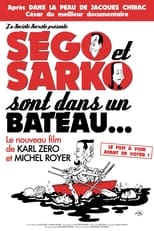
Title: Ségo et Sarko sont dans un bateau...
Character: Self (archive footage)
Released: April 4, 2007
Type: Movie



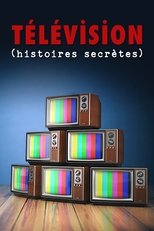
Title: Télévision (histoires secrètes)
Character: Self (archive footage)
Released: April 20, 1996
Type: TV
The behind-the-scenes story of French television… This documentary unveils the lesser-known history of two audiovisual decades that have shaped today's television. To explain from the break up of the French broadcasting service ORTF, in 1974, to the creation of Arte, via the birth of Canal+, the life and death of La Cinq and the privatization of TF1 — the succession of political, economic and cultural decisions that have shaped what is known as the “PAF” (French Audiovisual Landscape).

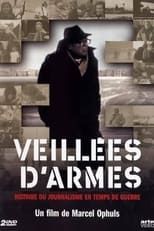
Title: The Troubles We've Seen
Character: Self
Released: November 23, 1994
Type: Movie
We follow Marcel Ophuls' two journeys to Sarajevo in 1993. He is starting a documentary about war correspondants. But this also becomes a reflexion about truth and life. The form consists in many interviews of mostly French and American journalists and reporters of television or newspapers.


Title: Against Oblivion
Character: Self
Released: December 11, 1991
Type: Movie
Contre l'Oubli (Against Oblivion) is a compilation of 30 French filmmakers, Alain Resnais and Jean Luc Godard among them, who use film to make a plea on behalf of a political prisoner. Jean Luc Godard and Anne Marie Mieville's film concerns the plight of Thomas Wanggai, West Papuan activist who has since died in prison. The short films were commissioned by Amnesty International.

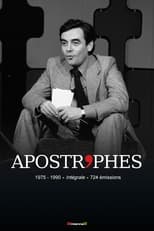
Title: Apostrophes
Character: Self
Released: January 10, 1975
Type: TV
Apostrophes was a live, weekly, literary, prime-time, talk show on French television created and hosted by Bernard Pivot. It ran for fifteen years (724 episodes) from January 10, 1975, to June 22, 1990, and was one of the most watched shows on French television (around 6 million regular viewers). It was broadcast on Friday nights on the channel France 2 (which was called "Antenne 2" from 1975 to 1992). The hourlong show was devoted to books, authors and literature. The format varied between one-on-one interviews with a single author and open discussions between four or five authors.
